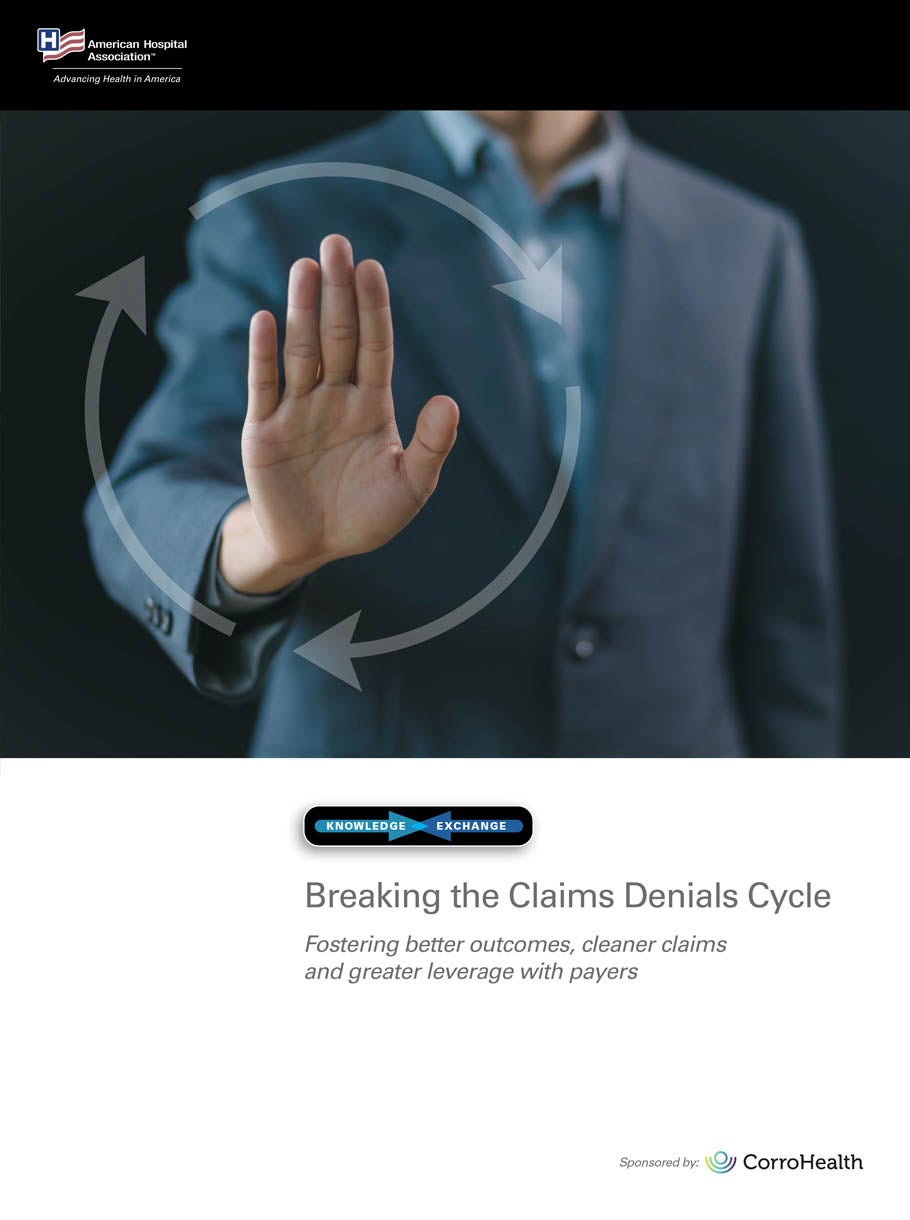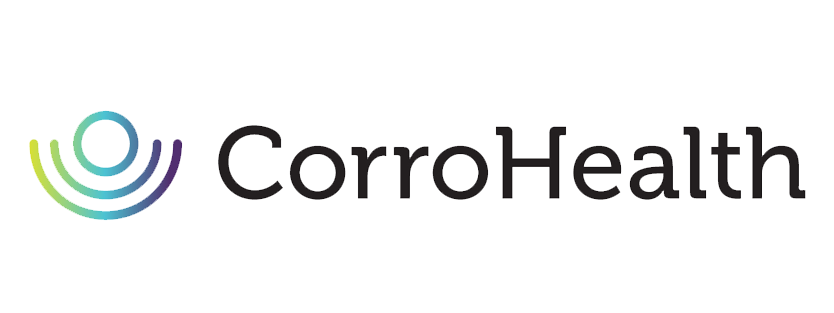
Breaking the Claims Denials Cycle
AHA Knowledge Exchange
Fostering better outcomes, cleaner claims and greater leverage with payers
Hospitals and health systems are facing mounting frustration from both providers and patients as claim denials continue to rise. These denials often result in unexpected medical bills for patients and financial pressure on organizations that have already delivered critical care. Despite thorough documentation, the growing use of artificial intelligence (AI) in medical necessity reviews has contributed to a surge in rejected claims. As advocacy efforts continue to hold corporate health plans accountable for covering medically necessary treatments, there’s a growing need to rethink payer engagement. By leveraging technology, health systems can move beyond the reactive cycle of chasing approvals and instead focus on preventing denials before they occur. This Knowledge Exchange e-book outlines a proactive payer strategy that tackles claim denials at the source through real-time intervention, aiming to improve patient outcomes and ease provider burden.
7 high-impact strategies driving measurable improvement across care quality, documentation and payer engagement
- Prioritize documentation as a clinical and strategic asset. Embed certified clinical documentation specialists to ensure that coding aligns with care delivered. Use natural language processing (NLP)- enabled software and clinical documentation improvement (CDI) prioritization tools.
- Target denials with precision and data. Conduct weekly denial meetings and use aging claims reports to track unresolved high-dollar cases. Break down denials by root cause; identify patterns like coding mismatches and downgrades.
- Improve claims cleanliness with front-end tech. Adopt AI-powered tools to reduce variation and catch documentation errors before submission. Deploy computer-assisted coding and CDI software to flag missing data and prevent denials.
- Leverage claim and payer data for negotiation. Share claim denial analytics with payers to gain leverage and foster accountability. Hold monthly meetings with payer representatives to compare narratives and drive engagement.
- Advocate for legislative and policy reform on prior authorization. Push for standardized turnaround times, coding consistency and appropriate waivers.
- Align language between clinicians and coders. Match physician documentation language with coding standards through regular education and assign coding specialists to work directly with providers. Implement embedded documentation tools that automatically translate clinical language into compliant format.
- Engage physicians in system improvement. Educate physicians on best practices for preauthorization and denial mitigation. Promote real-time documentation support tools that reduce manual effort and errors.
Participants

Kurt Barwis, FACHE
President and CEO
Bristol Health

Glenn Crotty Jr., M.D.
Executive Vice President
Vandalia Health
President and CEO
CAMC

Jennifer Eslinger, MBA, FACHE
President, Health Care Operations, and Chief Operating Officer
Rochester Regional Health

Michelle Fenoughty, M.D., MBA, FACHE
President and CEO
Hendricks Regional Health

Phillip Kambic, MBA, LHD, FACHE
President and CEO
Riverside Healthcare

Joe Meador, CPA, MBA, FHFMA
Senior Vice President and Chief Financial Officer
Augusta Health

Jerilyn Morrissey, M.D.
Chief Medical Officer
CorroHealth

Thomas Scott, FACHE, FABC
President and CEO
CentraState Healthcare System

Moderator:
Suzanna Hoppszallern
Senior Editor, Center for Health Innovation
American Hospital Association
AHA Knowledge Exchange
Gain insights from the C-suite and health care leaders on the most pressing issues and transformational strategies.








